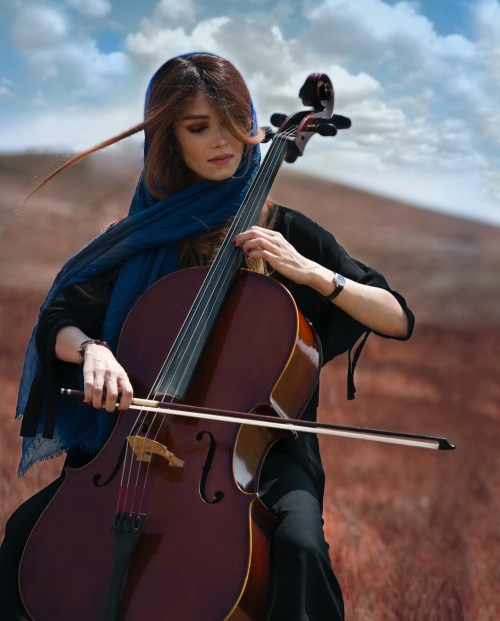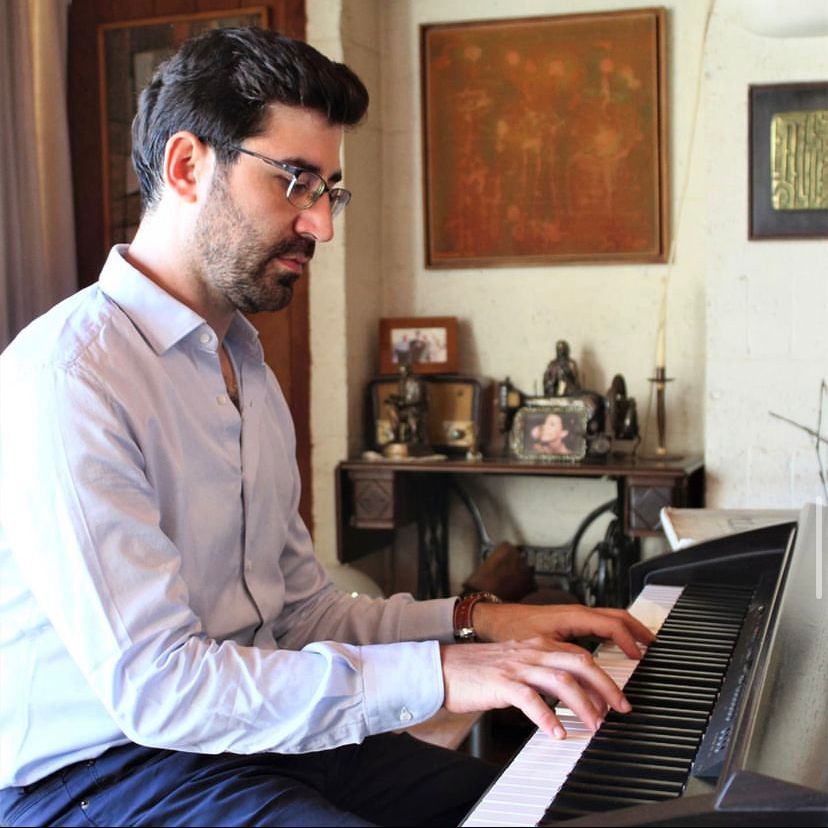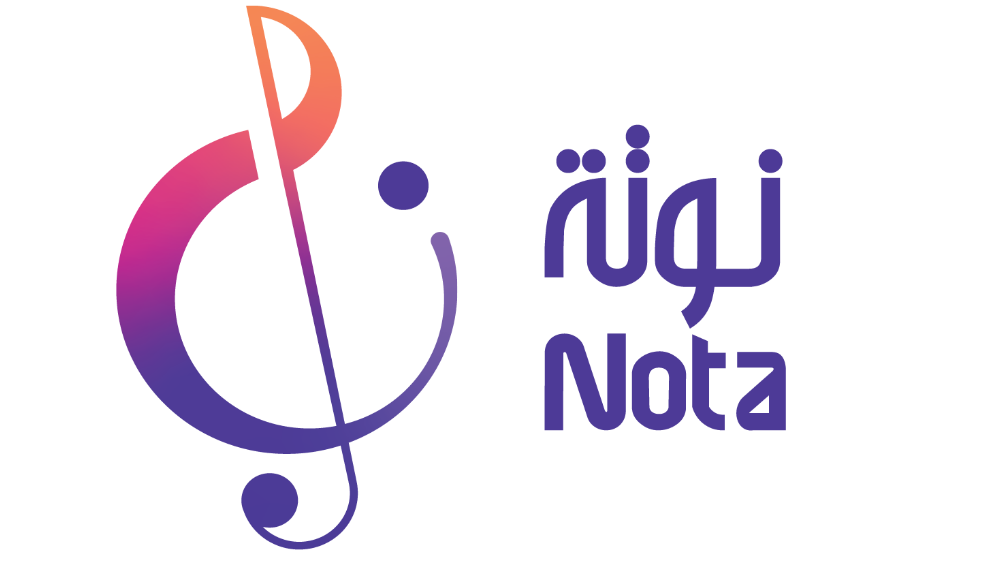


Nota is your place to celebrate music, experience cultural identities through music and connect with music-loving communities from all over the globe.
Nota welcomes all levels of experience to create, play, sell, share their music and make new connections through the most versatile online library produced by the Nota Community and beyond.
Ultimately, Nota aims to "set your music free" and provide you with tools, resources, and a place to create your own community to make the most compelling music pieces without the barriers.
Nota is your platform to celebrate music, experience cultural identities through music and connect with music-loving communities from all over the globe.
Connect with "musical minds" globally to inspire, create, play and share music, now and for future generations.

To set music free; equal opportunity for all existing and
aspiring Artists.

To connect with "musical minds" globally; biggest musical community in the world with one common interest; Music.

To acknowledge and give back to "Music Cultures" globally;
every genre, experience level and interest.
Can you tell us a little about yourself and your music?
OK… I was never a child prodigy and didn’t start learning piano at 3 Actually I only decided to start when I was 9 or 10 if I remember well (I used to watch my cousin play the piano regularly and I progressively fell in love with it ). But in our home we used to listen and appreciate classical music, especially with dad in his office (as an architect). So I started private lessons with my cousin, then I continued for 3 years at school, and then I managed to take more advanced lessons with also music theory, harmony and solfeggio at a music school while I was at the same time doing my internship in medicine.
As for composition, it started as playing “random” tunes on the keyboard. And so for some of them at that time, I was like: “Oh ok…I like this. I think this is worth it to develop” and so it first came gradually with more and more writing and trial and error. But of course with time I was able to write much better and more easily after studying music theory and harmony. And the more I wrote music that I liked (that I considered “something” ), the more I wanted to write.

What does music mean to you?
For me, music should first give you goose bumps. It also means creativity and beauty, and it is the most accurate way to express emotions. I am particularly talking about instrumental music. Because many feelings (if not most of them) can’t be accurately expressed with words because a word usually has a specific meaning or connotation. But with instrumental music, when you have no words, you are able to express with a “sound picture” something from inside you that is unique to you. But what is great about music is that it is not a picture. It is dynamic.
What and who influenced your unique style in composing music?
When I started composing, I found myself coming up with tunes that are melodically and harmonically pleasant to the ear. Let me explain… why did I say pleasant to the ear? Because I always believed – and I still do – that music can be written in such a way that its very structure (intrinsically) be objectively pleasant to (almost) anyone on the planet, regardless of their musical folklore or traditions, culture, society, or personal taste. There are just some notes and some sounds that always “feel good” (and therefore sound pleasant) together. And so some 25 years ago, I discovered (by chance on TV) a musician and composer whose music was exactly as I see it myself…objectively pleasant to almost every ear. And this man was Yanni, who became (and still is) my musical idol since then (I am definitely his biggest fan in Lebanon ). So Yanni’s music is the number one influence on mine, followed by many names like Secret Garden (who composed the famous You Raise Me Up – as many probably don’t know), Enya, Vangelis, Ennio Morricone, and our late icon Elias Rahbani.
What is music therapy and how is it conducted?
Music therapy involves the use of music for individualized non- musical therapeutic goals. So the musical interventions in music therapy are evidence-based and are done in a clinical setting. And the individual having a music therapy session is not required to have any musical background, but the music therapist should definitely be a musician.
Music therapy techniques are used to improve physical, psychological, emotional, cognitive, social and relational wellbeing of individuals, like motor function and coordination, social skills, emotions and self-expression as well as memory and language. Music therapy sessions can be done in groups or one-to-one. Music therapy interventions are seen in various settings such as nursing homes, schools, hospitals, primary care centers, private practice, and even jail.
There are 2 types of music therapy:
- Active music therapy: aims at developing the self-expression of the individual by actively producing “music” himself. It allows him to get out of his own “bubble” or his comfort zone. Here, the individual can use anything available: objects, instruments, the table, the floor, the wall (for rhythm), his/her own voice (singing), or his/her body (movement). So improvisation plays a big role here. Active music therapy is mostly used in cases like learning disabilities and autism.
- Receptive music therapy: here the individual just listens to recorded or played music, and the therapist observes how he/she reacts. We can see or sense happiness, sadness, enthusiasm, anxiety, anger, bodily responses or even nothing. When the music is familiar to someone, it is not uncommon to see memories brought back (even in people with Alzheimer’s disease).
Who benefits from music therapy?
Music therapy can benefit all age groups from babies to elderly people. It is particularly useful for autistic people (mostly children and adolescents), but also for Down’s syndrome, people with memory problems (like Alzheimer), Parkinson’s disease, depression, speech problems and learning disabilities, pain relief and rehabilitation. And those are only a few examples.
What has led you to become a music therapist?
Well… as I already said, my big passion has always been music since I was a kid, and especially creating music (composing). Plus, I always believed in the “superpower” that GOOD music has for improving the general wellbeing of every one of us on all aspects (physical, psychological, emotional, social). And I learned that this superpower comes not only from one’s personal preferences or taste in music, but also from the structure of the music itself (how it is written, and even how it is played) – so that’s why I emphasized on “GOOD” music And so coming from a medical background in the first place (I am also a medical doctor ), I was like: why not combine music and medicine so that I can use music to help heal people? So I decided to become a music therapist

100% of your earnings are yours to keep
